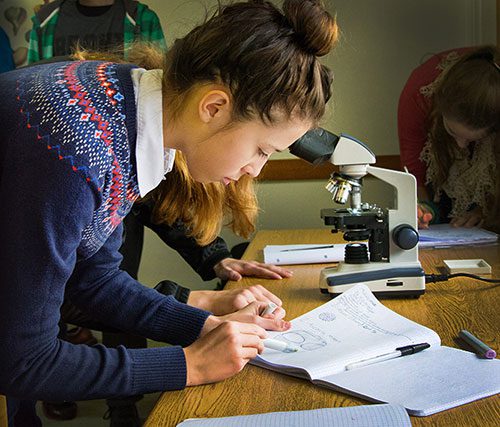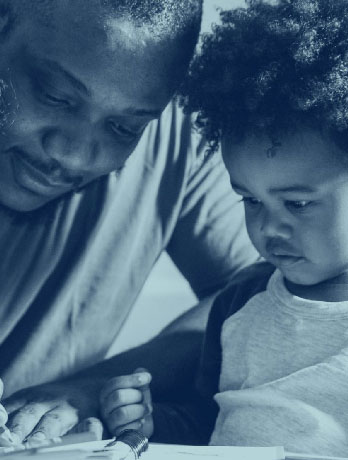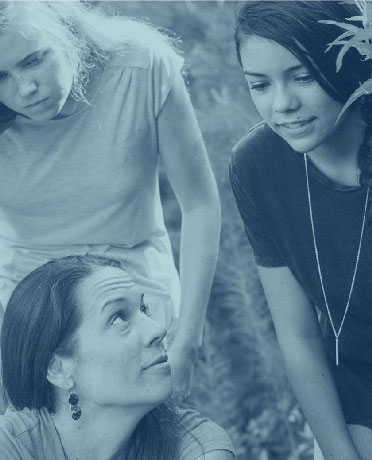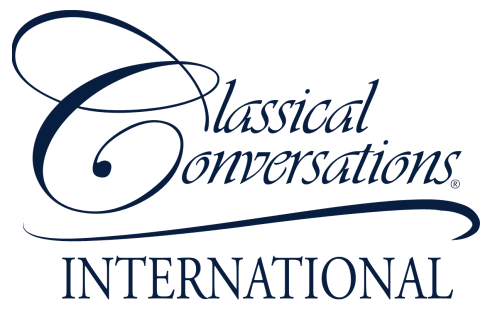Our Programs

Looking Back to Move Forward
Students study the flow and development of ideas that shaped Western thought and culture and how they have impacted twenty-first century thinking. British literature, Latin 2, traditional logic and Socratic dialogue, algebra and geometry, Western cultural history, and biology provide the academic core. Advances in language skills, research, writing, dialogue, and debate continue as Challenge II moves into a more rhetorical format than earlier Challenges. Elocution or “style” in written and oral presentations gains importance as students learn and practice new types of rhetorical skills, including persuasive, impromptu, and debate presentations.
Supported by their local community group, parents continue to gain confidence in homeschooling their child through the traditional high school years. Students are also able to earn university credit through our CC Plus program, should they desire.
There is No Growth Without Challenge
The Six Strands to Challenge II
Math is all around us if we know where to look. Each week, students further their understanding in math as the conversation centers around the ideas of numbers, laws, relationships, shapes, simple proofs, equations of higher orders, knowns and unknowns, and variables. Students recognize math in the geometry of nature, the proportions of art, and the ratios of music.
Meticulous practice brings us closer to mastery. This course builds on the framework of language and mastery of vocabulary, rules, and endings established in the Challenges A, B, and I programs. Students progress to advanced Latin grammar and sentence structure, allowing for more complex translation and the ability to learn the Latin vocabulary in the context of Roman history. In the second semester of this homeschool program, students integrate the overarching theme of Challenge II and layer it with Western cultural influence as they read, translate, and discuss the conquests of Caesar in seminar.
Learn to appreciate the beauty and complexity of God’s creation. Through this biology course, students study the beauty and complexity of God’s creation, including a hands-on laboratory science experience that correlates with text concepts. The weekly community group seminar experiments reinforce the scientific method, teaching microscope use and dissection techniques, all while remaining firmly rooted in a biblical, Christian worldview. Students sketch their observations, record their methods and data in their journals, and complete formal laboratory reports from selected experiments.
Challenging our present understanding can reveal gaps in our knowledge and build wisdom. In the first semester, studying Traditional Logic II, students continue with the logic ideas that they began in Challenge I. They begin to look at hypothetical rhetoric and complex syllogisms. At home, students study the text and complete daily exercises. In community seminar, students study new forms and examine arguments or philosophical ideas for logical thought and validity.
In the second semester, homeschool students are introduced to Socratic dialogue by reading Plato’s Crito aloud together in class. Then, they embark on a more in-depth study of Plato’s Meno dialogue. They attempt to define virtue and discuss whether it can be taught.
By studying others, we better understand ourselves. This community seminar, as in Challenge I, allows homeschool students to develop strong exposition, composition, and rhetorical skills using classical British literature. Through the study of literary terms, the practice of Socratic discussion, and the refinement of persuasive essay writing, students examine the literature and scrutinize the value of their own opinions.
To aptly contemplate present ideas, we must examine their origins. With a year-long emphasis on Western cultural history, students will sift through the origin of ideas as they discuss, debate, and present analyses of Western culture and its defining influences from a Christ-centered worldview.
Using the skills of research, exposition, and logic, students reflect on the works of featured artists and composers and consider how the arts influence and are influenced by culture. The creation of a multi-year, ongoing timeline enables students to integrate major persons and events with the art periods and philosophical ideas of the time. Throughout the year, students work on enhancing their elocution, or rhetorical style, through a variety of formal speaking events, including team policy and Lincoln-Douglas debates.
We embrace a real-world approach in all aspects of our education. Local directors can choose to offer a yearly formal event for Challenge students to better learn how to interact with their communities and each other.
Join the Conversation
Community is at our core, with families doing life together as they learn.
Find a community near you

